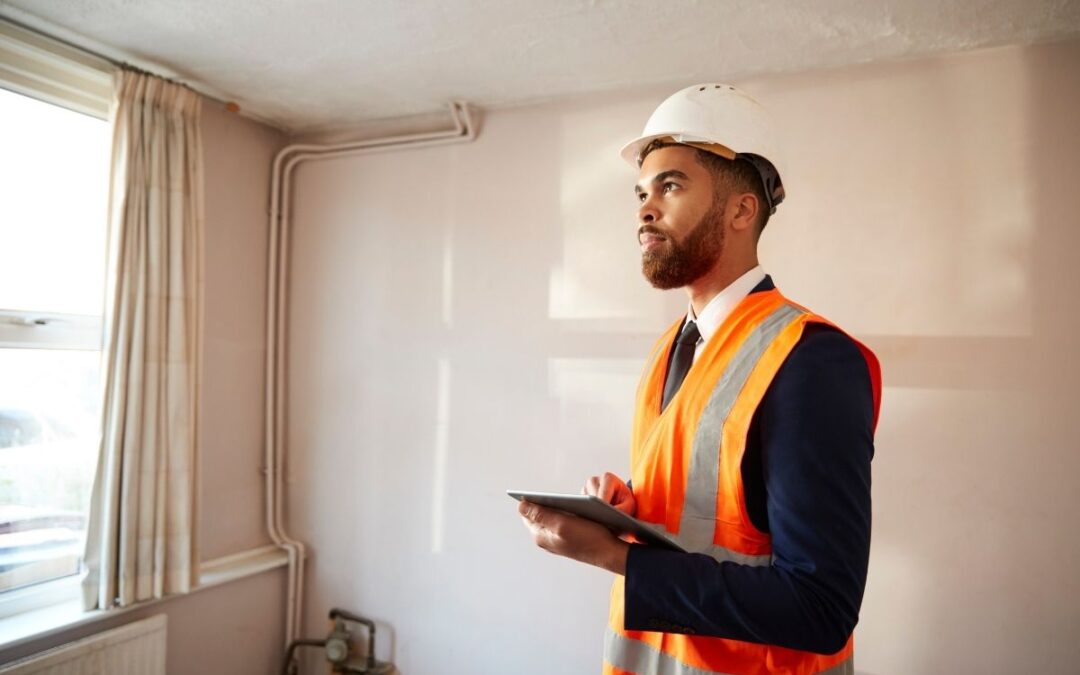Do you know what to expect in your home inspection? The house inspection process helps you to understand the condition of the property that you want to buy. Here’s a handy home inspection checklist to guide you through this essential process.
Why Bother with a Home Inspection?
Why should you bother paying for a home inspection? While it’s true that buyers in super-competitive real estate markets sometimes forego an inspection, it’s usually not a smart idea. It isn’t easy to know the actual condition of a property without having a professional home inspection.
Generally, you included the home inspection in your purchase offer as a contingency. That means that you can get out of the contract if you don’t like the inspection results. It’s also often possible to negotiate with the seller to either pay for the repairs or to lower the home’s purchase price.
Buying a home is a super stressful experience, and the home inspection can help relieve your fears. After all, knowing that you aren’t purchasing a money pit makes it easier to take on the responsibility of a long-term mortgage.
How to Get the Most from the Inspection
How can you reap the most benefit from ordering a home inspection? First, hire an experienced, professional residential inspector. Your real estate agent usually helps you to choose someone for the job.
Along with choosing a terrific inspector, you can become an active participant in the inspection process. Experts suggest that you attend the inspection to ask questions as the inspector moves throughout the house. Your real estate agent may also accompany you during the inspection.
One of the benefits of hiring an experienced local inspector is that they have in-depth knowledge of the neighborhood’s housing stock. For example, examining a one-hundred-year-old bungalow requires knowledge of old wiring and potential plumbing issues. Don’t hesitate to take this opportunity to gain knowledge about the inner workings of your home.
Depending on your home’s size, expect to spend approximately an hour or so at the inspection. Realtor.com suggests that you ask for answers to questions such as
- Are there any areas that might require an expensive fix down the line?
- What maintenance recommendations do you suggest for the working parts of the home?
- Are there any concerning issues?
In general, keep in mind that this is your chance to talk in person to someone who examines homes as a profession. Keep asking questions until you feel completely comfortable that you understand the condition of your property. A skilled inspector will be pleased to chat with you throughout the examination.
Home Inspection Checklist
Now that you have some tips on making the most of the inspection process, it’s time to look at what it entails. Here’s what you should expect during your home inspection.
A typical home inspection checklist includes an examination of the following areas:
HVAC
The heating and cooling systems are a critical part of the inspection. The inspection report will focus on things such as the age and functionality of the systems.
Roof
A sound roof is a must for any house. A damaged roof is an invitation to interior water damage, wood rot, and mold. Depending on the inspection results, you might decide to ask a roof inspector for a thorough examination.
Structural Soundness
The structural examination notes issues with things such as windows, walls, and floors. For example, the inspector opens and closes every window to check for any problems. Pay careful attention to descriptions of water damage in the home.
Plumbing
The house inspector checks the pipes and overall plumbing system to look for any problems. The inspector can only comment on the pipes they can see, and there might still be problems lurking inside the walls. Since pipe and sewer line defects can be pricey to fix, contact a plumber for a more in-depth look if necessary.
Electrical
A problem-free electrical system is essential to your family’s safety. Electrical problems can occur in any house, and it’s the inspector’s job to discover any defects.
Pest Infestation
No one wants to share space with unwanted mice and termites. A well-trained, experienced house inspector knows how to search for clues that a structure has pest issues. Remember, however, that the inspector can’t see inside walls where pests can remain hidden.
Other Inspections
Depending on your situation, there are other investigations that you might choose to order. If the house has a chimney, for instance, it’s smart to have a chimney expert take a closer look. Chimney repairs can be expensive, and a defective one can pose a danger to your home and family.
A radon test is another example of a specialized inspection. Radon is a known cause of cancer, and you won’t know if your home has a high level of it unless you check for it.
Ask your real estate agent to order any home inspections that will help you to feel confident when you finalize your home purchase.
You’ll receive written copies of each inspection report. Your real estate agent will negotiate with the seller to resolve significant issues raised in the reports. The seller is often eager to solve your concerns so you will remove the inspection contingency and continue with the purchase process.
Last Thoughts
Lastly, a home inspection is one of the significant steps in buying a home. Use the information from our home inspection checklist to get to know the house you want to call home.
Everyone at Strategic Mortgage Solutions spends each day helping potential homeowners to purchase their Lane County dream home. Contact us to find out about the terrific home mortgage options available to today’s buyers.


